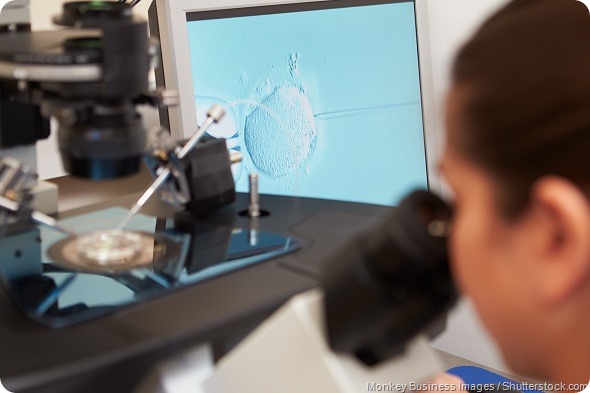An expert committee have recommended that the U.S. government allows the clinical investigation of mitochondrial replacement techniques (MRT) to go ahead.
In a report from the National Academies of Science, Engineering, and Medicine, scientists and ethicists conclude that starting the investigation is “ethically permissible,” providing “significant conditions and principles are met.”

MRT is a technique that has the potential to prevent transmission of severe mitochondrial genetic diseases that are often fatal in childhood. However, the use of MRT is controversial since it involves substituting faulty mitochondria present in an intended mother’s egg with non-pathogenic mitochondria from another woman.
This so-called “three-person IVF” procedure has so far only been authorized in Britain and the techniques are not currently conducted in humans in the U.S.
In mitochondrial disease, which can be caused by mutations in mitochondrial DNA (mtDNA), the mitochondria fail to produce sufficient energy for cells or organs to function normally. These diseases vary in severity but symptoms often include developmental delay, muscle weakness, fatigue, seizures and heart problems that can lead to morbidity and sometimes death.
The aim of MRT is to create an embryo using the nuclear DNA (nDNA, the DNA that codes for our traits) from the intended mother and non-mutated mtDNA from another woman. A child born as a result of the procedure would therefore have genetic material from three people; nDNA from one woman and one man and mtDNA from another female.
Although MRT could satisfy a woman’s desire to have a genetically related child that is not at risk of mitochondrial disease, the technique raises ethical, social and policy concerns. However, the FDA is considering whether the technique should be allowed in the U.S and asked the Institute of Medicine (IOM) at the U.S. National Academies of Sciences, Engineering and Medicine to assemble an expert committee who would consider these issues and provide an ethical analysis report.
Chair of the committee, Jeffrey Kahn (The Johns Hopkins Berman Institute of Bioethics in Baltimore) says: “we concluded that the most germane issues could be avoided if the use of these techniques were restricted by certain conditions, rather than prohibiting them altogether.”
One of the limitations is that initial MRT clinical investigations should only be carried out in women who are at risk of passing on a severe mitochondrial genetic disease that could cause premature death or serious impairment. Another is that, since men cannot pass on mitochondria, only male embryos should be used for the technique.
The committee suggests that if the investigation of MRT in male embryos proves successful, the FDA could think about extending the research to include female embryos if there is sufficient evidence to show that this would be both safe and effective.
Finally, the report concludes “In the committee’s judgment, a slow, cautious approach to MRT is justified, with the requirement of deliberate and continued attention to ethical, social, and policy issues.”